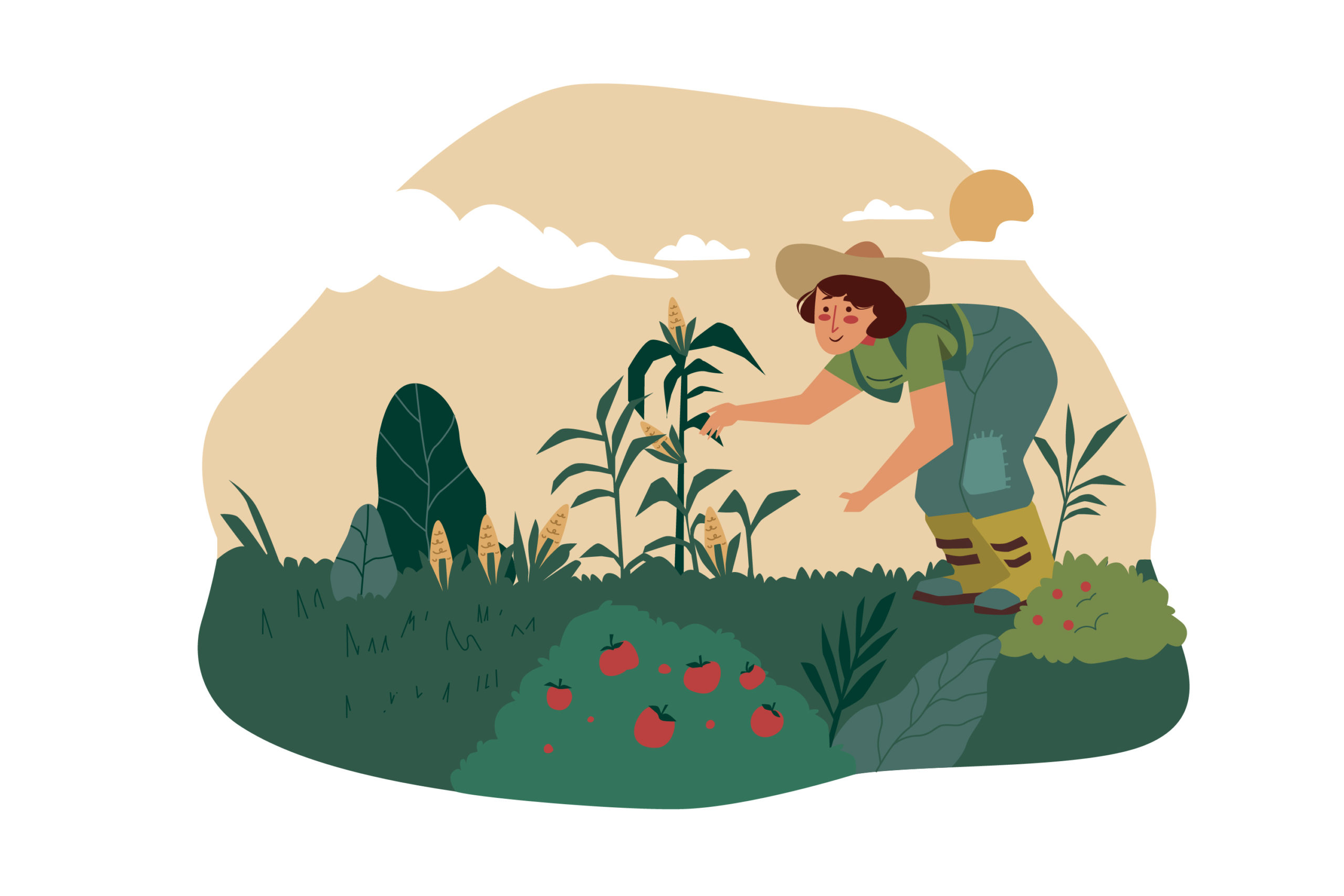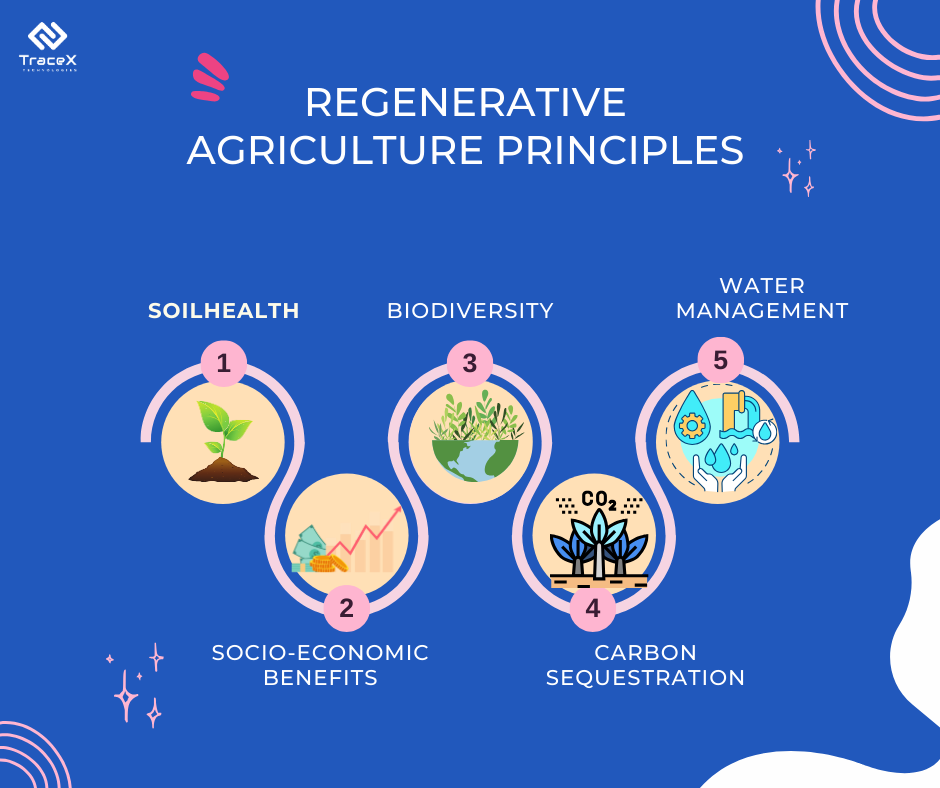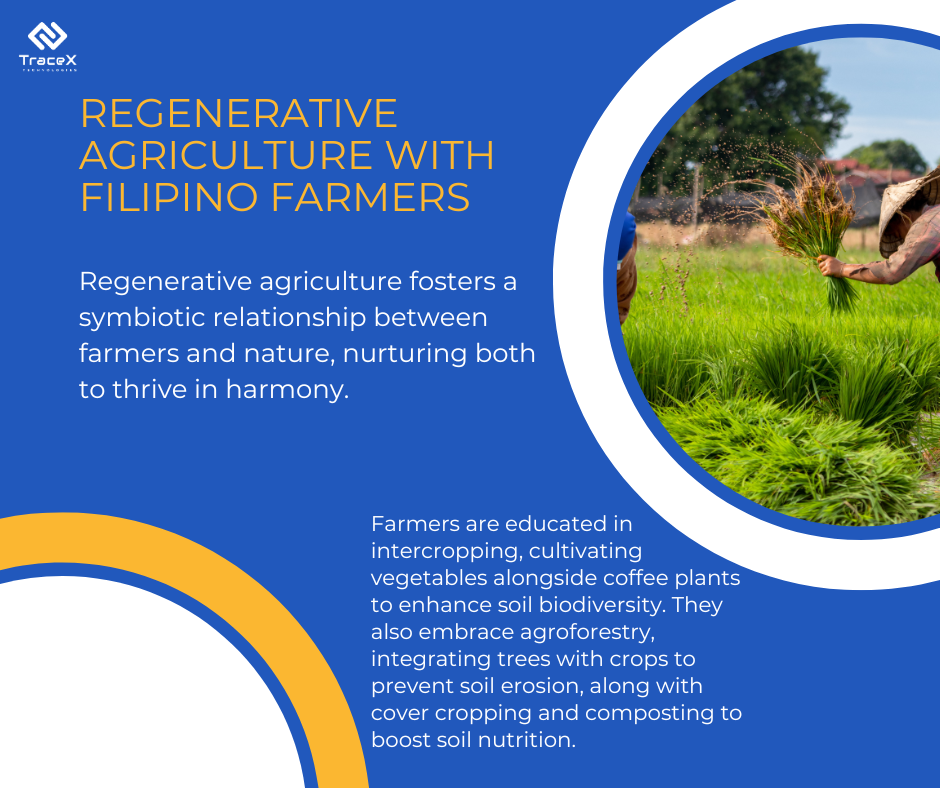Contact: +91 99725 24322 |
Menu
Menu
Quick summary: Explore the journey of regenerative agriculture with Filipino farmers in our latest blog. Discover how sustainable practices are reshaping the landscape of agriculture in the Philippines and driving positive environmental and social impact.

Embark on a transformative journey into regenerative agriculture with Filipino farmers, where sustainability meets innovation. In the lush landscapes of the Philippines, a movement is underway to restore ecosystems, conserve resources, and empower communities through regenerative practices.
Regenerative agriculture is a holistic agricultural method that prioritises ecosystem restoration and enhancement above depletion. It focuses on strategies including minimal soil disturbance, crop rotation, cover cropping, and composting to promote soil health, biodiversity, and water retention. Regenerative agriculture strives to boost climate resilience, crop yields, and long-term sustainability by emulating natural processes.
Regenerative agriculture is an approach to farming that focuses on restoring and enhancing the health of the soil, ecosystem, and community.

Regenerative approaches are essential for sustainable farming because they address environmental deterioration and food security issues. Regenerative agriculture minimises erosion, reduces dependency on synthetic inputs, and sequesters carbon from the atmosphere, all of which contribute to the fight against climate change. Furthermore, these techniques encourage biodiversity, improve ecosystem services, and boost farmers’ livelihoods. Overall, adopting regenerative agriculture is critical for ensuring food security, environmental sustainability, and resilience in the face of a changing climate.
The Philippines is rich in biodiversity, but conventional farming practices often degrade ecosystems. Regenerative methods help protect native species and maintain ecological balance. With increasing climate variability, regenerative practices enhance soil’s water-holding capacity, making farms more resilient to droughts and extreme weather events. By improving soil health and diversifying crops, regenerative agriculture contributes to stable food production. Sustainable practices benefit farmers economically by reducing input costs and increasing yields over time. Regenerative farming fosters stronger community ties, knowledge sharing, and local empowerment.
Regenerative agriculture is a farming technique that focuses on restoring and improving ecosystem health. Its core principles are to improve soil fertility, increase biodiversity, and promote climate resilience. Unlike traditional farming methods, regenerative agriculture seeks to work with nature rather than against it, emphasising long-term sustainability and productivity.
Regenerative agriculture’s key practices and techniques include low or no-till farming, cover cropping, crop rotation, and livestock integration. These activities help to increase soil organic matter, improve soil structure, and improve nutrient cycling. Regenerative agriculture enhances soil health by minimising reliance on synthetic inputs and promoting natural processes.
Implement best practices in farming.
Discover the secrets to sustainable agriculture success.
Farmers in the Philippines are increasingly embracing regenerative agriculture ideas, particularly in the coffee sector. Farmers are implementing strategies like agroforestry, which involves growing coffee alongside trees to promote biodiversity and soil conservation. Furthermore, adopting organic farming methods, as well as using compost and natural fertilisers, is assisting Filipino coffee producers in developing climate resilience while producing high-quality, sustainable coffee beans. These projects not only benefit the environment, but also help local populations with their livelihoods and food security.
Explore how innovative platforms are revolutionizing agriculture practices
Unlock the potential of digital farm management in the Philippines!

Government programmes and policies promoting regenerative farming methods are critical to advancing sustainable agriculture initiatives. In the Philippines, agencies such as the Department of Agriculture (DA) carry out programmes such as the National Organic Agriculture Programme (NOAP) and the Sustainable Integrated Area Development (SIAD) programme, which provide technical assistance, training, and financial support to farmers transitioning to regenerative methods. Furthermore, legislation such as the Organic Agriculture Act of 2010 establish a legal framework for encouraging organic and regenerative farming practices.
Agro-Eco Philippines (AEP) is a non-profit organization dedicated to transforming Filipino agriculture through regenerative practices:
AEP is a dynamic non-governmental organization (NGO) operating in the Philippines. Founded with a vision to create a more sustainable and resilient agricultural landscape, AEP focuses on empowering farmers and fostering ecological balance.
AEP recognizes that resilient communities are essential for long-term agricultural success. By providing training, resources, and support, AEP helps farmers adapt to changing environmental conditions, market dynamics, and socio-economic challenges. AEP believes that sustainable farming practices contribute to robust local economies. By encouraging regenerative approaches, AEP aims to enhance livelihoods, reduce poverty, and create economic stability.
AEP’s core mission revolves around transforming conventional Filipino farmers into champions of agroecology and organic regenerative farming. They facilitate this transition by imparting knowledge, organizing workshops, and fostering a sense of community among farmers. AEP promotes agroecological principles, emphasizing the interconnectedness of soil health, biodiversity, and ecosystem resilience. Practices include crop diversification, companion planting, and natural pest management.
AEP encourages farmers to adopt organic methods that rejuvenate the land. Techniques such as cover cropping, composting, and minimal tillage enhance soil fertility and structure. By avoiding synthetic chemicals, farmers contribute to healthier ecosystems and safer food production. AEP recognizes that farmers are the true stewards of their land. By empowering them with knowledge, AEP catalyses a grassroots movement toward sustainable agriculture.
Overall, regenerative farming approaches provide a comprehensive approach to tackling environmental, social, and economic concerns in agriculture.
Farm management solutions offers invaluable support to Filipino farmers in embracing regenerative agriculture practices by providing essential tools for planning, monitoring, and optimizing their operations. Here’s how technology solutions like TraceX farm management software can aid Filipino farmers in adopting regenerative agriculture:
1. Planning and Decision-Making:
– Farm management software enables farmers to plan their activities effectively by providing insights into optimal planting schedules, crop rotations, and land management practices.
– By analysing historical data and local environmental conditions, farmers can make informed decisions to maximize soil health, biodiversity, and ecosystem resilience.
2. Monitoring and Data Collection:
– Technology solutions allow farmers to monitor key indicators of regenerative agriculture, such as soil health, water usage, and biodiversity.
– Sensors and remote monitoring tools can track soil moisture levels, nutrient content, and crop health in real-time, facilitating proactive management decisions.
3. Resource Optimization:
– Farm management software helps farmers optimize resource use by precisely managing inputs such as water, fertilizer, and pesticides.
– By employing precision agriculture techniques, farmers can reduce waste, minimize environmental impact, and improve crop yields sustainably.
4. Collaboration and Knowledge Sharing:
– Technology platforms foster collaboration among farmers, researchers, and agricultural experts, facilitating the exchange of best practices and innovative ideas.
– Online forums, webinars, and digital extension services provide access to valuable resources and support networks, empowering farmers to learn and adapt regenerative practices effectively.
5. Compliance and Certification:
– Farm management software assists farmers in meeting regulatory requirements and obtaining certifications for sustainable and organic farming practices.
– By maintaining detailed records of their operations and adhering to standards, farmers can enhance their market access and credibility with consumers seeking ethically produced agricultural products.
In summary, technology solutions like TraceX farm management solutions play a crucial role in supporting Filipino farmers on their journey towards regenerative agriculture. By providing tools for planning, monitoring, resource optimization, collaboration, and compliance, these solutions empower farmers to adopt sustainable practices that benefit both the environment and their livelihoods.
The potential for scaling up regenerative methods, as described in the linked publications, is substantial. Regenerative farming is a comprehensive approach to agriculture, improving soil health and biodiversity while also increasing resilience to climate change. Regenerative methods, which restore ecosystems and promote natural processes, have the potential to transform food production systems, including coffee and other crops such as tea. Scaling up these techniques can result in long-term sustainability, higher yields, and better livelihoods for farmers.
However, significant challenges exist to the adoption and implementation of regenerative agriculture. These include limited access to resources and information, budgetary constraints, and the requirement for supportive policies and market incentives. Addressing these challenges necessitates investment in farmer education and training, access to low-cost supplies and technologies, and supporting government policies that encourage sustainable agricultural methods. Collaboration among stakeholders, including farmers, governments, NGOs, and the commercial sector, is critical for overcoming these obstacles and realising the full potential of regenerative agriculture.
Exploring regenerative agriculture with Filipino farmers reveals a revolutionary farming technique that has the potential to address urgent environmental and socioeconomic concerns. Filipino farmers are increasing their resilience to climate change while also supporting sustainable livelihoods and food security through regenerative methods focused on soil health, biodiversity preservation, and carbon sequestration.
The blog’s findings shed light on the real benefits of regenerative agriculture for farmers, ranging from better crop yields and lower input costs to improved soil fertility and water retention. These accomplishments demonstrate the ability of regenerative farming to have a positive ripple effect across entire communities, promoting environmental stewardship and social well-being.
However, the path to widespread adoption of regenerative agriculture in the Philippines is fraught with hurdles, such as resource availability, information distribution, and legislative support. To overcome these challenges, farmers, policymakers, academics, and other stakeholders must work together to establish an environment conducive to the growth of regenerative techniques.
Finally, the study of regenerative agriculture with Filipino farmers provides hope for a more sustainable and resilient future. By using the power of regenerative methods, we can create not only healthy soils and thriving ecosystems, but also vibrant rural communities and a more sustainable food system for future generations.
